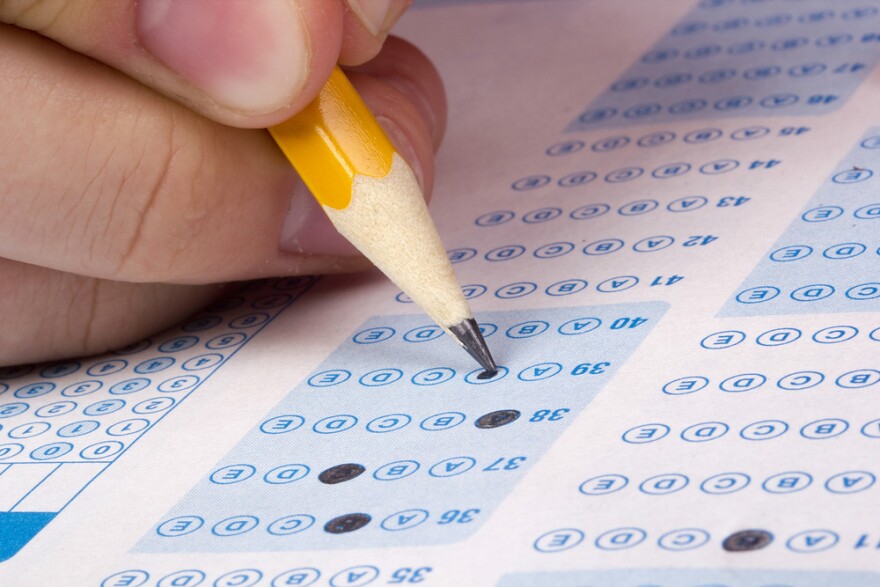Hate tests? The Dallas school district has some good news for you. This summer, the district announced it’s going to nix one-third of its assessments.
Administrators say teachers will get to focus more on teaching. The district's decision won’t end the debate over testing.
Dallas students take the STAAR tests – the state exams in reading math, writing, among other topics. Then there are the district tests in foreign language, music and gym. Add progress tests every six weeks. Then there are the district's own Assessments of Course Performance.
“Pretty much any reduction in the number of tests is a good thing,” says Robert Michael, who teaches English at Seagoville High School.
“They’re tested from day one to last the day,” Michael says. “When we start school, they get assessed in the first couple weeks of school so we know what level they’re at. Later in the spring, they’ll take the test to see how much growth is occurring. Now this is in addition to every other test.”
Dallas administrators said "enough." So did parents, who’ve said too many tests stress kids out.
That left Stephanie Elizalde scratching her head.
“Which ones do we need and why do we need them?” wondered Elizalde, the Dallas ISD's chief of school leadership.
Elizalde looked at those 100-plus district assessments given in the fall and spring and decided to cut them back.
But which ones?
Her department decided to end tests in history and social studies, to name a few. But the state doesn’t give tests in those subjects in lower grades. That raised a concern: Are students learning these subjects?
Elizalde is confident they will.
“Let’s take the social studies example,” Elizalde says. “We all know that reading is a vital component of social studies. So if in fact we are doing a better job in reading, we don’t need to go assess social studies to know that our students will be better prepared for social studies. Because if they can read and comprehend, they’re going to do better.”
Elizalde says there’s another obvious benefit to giving fewer tests.
“Assessment has taught students nothing," she says. "Teaching is where we’re going to get the leverage. And we want to free some time up so that teachers can actually teach. There’s no doubt in my mind that the data supports that we were over-testing."
Dallas ISD’s decision to cut back on tests is part of a national trend. For years there was a desire to hold districts accountable for what kids were learning. So there were more tests. Then came the backlash. In Texas, a few years ago, education officials reduced the number of end-of-course exams for high school seniors from 15 to five.
Yet, no hard-and-fast data exists on what’s too much testing versus too little, according to Southern Methodist University education professor Stephanie Al Otaiba.
“I think there’s just this sort of gut, practical, pragmatic sense of how much instructional time is lost to testing or test preparation,” Al Otaiba says. “There isn’t a gold standard for what proportion of time should be spent. If kids aren’t mastering content, then you have got to question whether that time should be spent with assessment.”
Elizalde says the goal is for all kids to master more content by trading test time for instruction time.
“Let’s say that my hypothesis of ‘let’s give teachers more time to actually teach,’" Elizalde says. "What should we see? We should see, even as early as December, we should see higher grades."
It will be a while before the district can put her hypothesis to the test.






